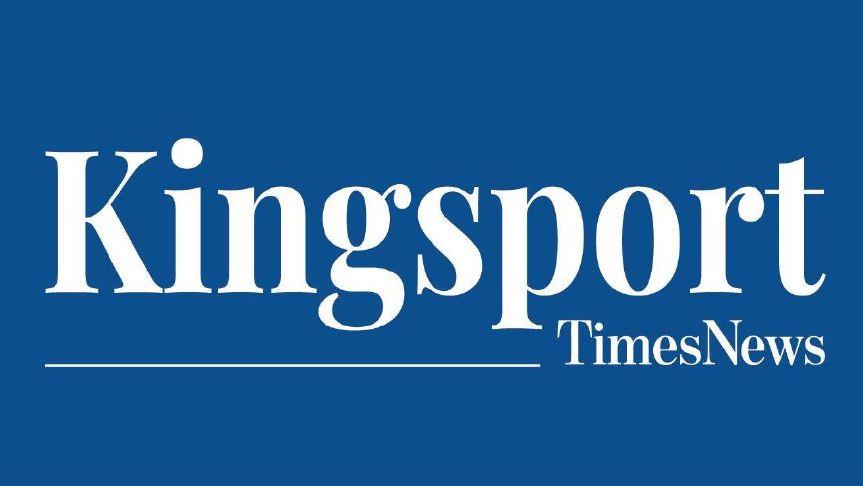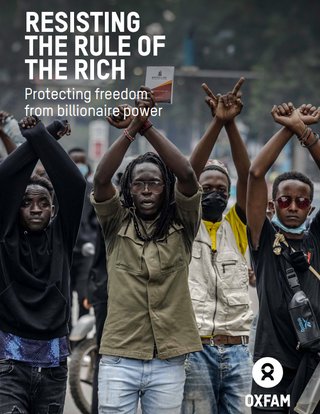African fintech driving financial inclusion closes funding round with over $200m – Impact Investor

Executive Summary
Moniepoint, a Nigerian financial technology firm, has successfully closed a Series C funding round, securing over $200 million in equity financing. The company’s core mission is to advance financial inclusion for Micro, Small, and Medium-sized Enterprises (MSMEs) and individuals, directly contributing to several United Nations Sustainable Development Goals (SDGs). This report details the funding, operational scale, and significant impact Moniepoint has on fostering economic development and sustainability in Nigeria.
Funding and Investment Details
Series C Funding Round
The funding was completed in two phases, demonstrating strong investor confidence in Moniepoint’s model and its alignment with global development objectives.
- Initial Close (October 2024): Raised $110 million, leading to a unicorn valuation of over $1 billion.
- Round Extension: Secured an additional $90 million in capital.
Key Investors and Stakeholders
The round attracted a diverse group of private equity, venture capital, and impact investors, highlighting the company’s dual commitment to financial returns and social progress. Participants included:
- Development Partners International (DPI)
- LeapFrog Investments
- Google’s Africa Investment Fund
- Lightrock
- Visa
- International Finance Corporation (IFC)
- Proparco
- Swedfund
- Verod Capital
- Alder Tree Investments
Secondary Market Activity
In a parallel transaction, Swiss impact investor Blue Earth Capital acquired a minority stake from British International Investment (BII) and Moniepoint’s employee share option programme. This move further solidifies the company’s position within the impact investment community.
Operational Overview and Market Impact
Customer Base and Transaction Volume
Moniepoint operates across all 36 states of Nigeria, providing critical digital financial services. The company’s scale underscores its role in building a resilient economic infrastructure, a key tenet of SDG 9.
- Customer Reach: Exceeds 10 million active business and personal banking customers.
- Transaction Value: Processes over $250 billion in digital payments annually.
- MSME Focus: Serves four million active businesses monthly, the majority of which are MSMEs.
Product and Service Evolution
Since its inception in 2015, Moniepoint has evolved from a service provider for banks into a comprehensive digital bank, offering a suite of products that promote economic participation.
- Core Services: Payments, business and personal banking, credit, and cross-border payments.
- Key Tools: Point of Sale (POS) solutions, business management and bookkeeping tools (MonieBook).
- International Expansion: Launched MonieWorld, a remittance solution targeting the African diaspora in the UK.
Contribution to Sustainable Development Goals (SDGs)
Addressing Financial Inclusion (SDG 8, SDG 9, SDG 10)
Moniepoint directly addresses the financial inclusion gap in Nigeria, where approximately half the adult population has limited access to financial services. By providing digital banking solutions, the company contributes to:
- SDG 8 (Decent Work and Economic Growth): Empowering MSMEs, which are critical engines for growth and employment, with the financial tools needed to operate and expand.
- SDG 9 (Industry, Innovation, and Infrastructure): Building a robust and accessible digital financial infrastructure that supports economic development.
- SDG 10 (Reduced Inequalities): Providing financial services to underserved populations, including small business owners who were previously excluded from the formal banking system. A reported one-third of its MSME clients had previously been unable to access formal credit.
Economic Empowerment and Poverty Reduction (SDG 1)
By facilitating access to credit, savings, and digital payments, Moniepoint supports the foundational elements of poverty reduction. Access to formal financial services allows small businesses to move beyond reliance on informal financing, fostering stability and growth, which is central to achieving SDG 1 (No Poverty).
Enabling Climate Action (SDG 13)
As noted by company leadership, economic development is a prerequisite for achieving most SDGs, including climate targets. Financial inclusion is a key enabler for climate initiatives. By providing reliable and structured data for lending institutions, Moniepoint’s technology-enabled platform helps unlock the necessary business and consumer borrowing required for climate-related investments, thereby supporting SDG 13 (Climate Action).
Future Outlook
The proceeds from the Series C round are allocated for continued growth and market expansion. Moniepoint is actively exploring plans to extend its impactful financial inclusion model to other African markets, aiming to replicate its success in advancing the Sustainable Development Goals on a continental scale.
Analysis of the Article in Relation to Sustainable Development Goals (SDGs)
-
Which SDGs are addressed or connected to the issues highlighted in the article?
-
SDG 1: No Poverty
The article highlights Moniepoint’s work in driving financial inclusion for underserved consumers. By providing access to basic financial services like digital payments, savings, and credit, the company helps individuals and families manage their economic resources better, which is a critical step in alleviating poverty.
-
SDG 8: Decent Work and Economic Growth
This is a central theme of the article. Moniepoint’s primary focus is on providing digital financial services to Micro-, Small and Medium-sized Enterprises (MSMEs). The article explicitly states that MSMEs are “a critical engine for growth and employment.” By empowering these businesses with tools for payments, banking, and credit, Moniepoint directly contributes to sustainable economic growth and job creation.
-
SDG 9: Industry, Innovation, and Infrastructure
Moniepoint is a fintech company that leverages technology and innovation to build a robust digital financial infrastructure. The article describes its evolution from a service provider for banks to a multi-product digital bank offering POS solutions, cross-border payments, and business management tools. This enhances the financial infrastructure and increases access to financial services for small-scale enterprises.
-
SDG 10: Reduced Inequalities
The article emphasizes that Moniepoint is “narrowing the financial inclusion gap” by serving populations that are “underserved by traditional banks.” By providing financial services to millions who previously had limited access, the company helps to reduce economic inequalities within Nigeria.
-
-
What specific targets under those SDGs can be identified based on the article’s content?
-
Target 1.4:
“By 2030, ensure that all men and women, in particular the poor and the vulnerable, have equal rights to economic resources, as well as access to basic services… and financial services, including microfinance.” The article shows Moniepoint directly addresses this by providing digital financial services to “underserved consumers” and those with “limited access to financial services,” thereby increasing their access to economic resources.
-
Target 8.3:
“Promote development-oriented policies that support productive activities, decent job creation, entrepreneurship, creativity and innovation, and encourage the formalization and growth of micro-, small- and medium-sized enterprises, including through access to financial services.” Moniepoint’s entire business model is aligned with this target. It provides MSMEs with essential financial tools like payments, banking, credit, and business management solutions, which are crucial for their growth and formalization.
-
Target 8.10:
“Strengthen the capacity of domestic financial institutions to encourage and expand access to banking, insurance and financial services for all.” As a domestic fintech company, Moniepoint is expanding access to banking and financial services across all of Nigeria’s 36 states, reaching millions of customers who were previously underserved by conventional banks.
-
Target 9.3:
“Increase the access of small-scale industrial and other enterprises, in particular in developing countries, to financial services, including affordable credit, and their integration into value chains and markets.” The article explicitly states that Moniepoint serves millions of MSMEs and that “around one third of the MSMEs had previously been unable to access formal credit lines,” demonstrating a direct contribution to this target.
-
-
Are there any indicators mentioned or implied in the article that can be used to measure progress towards the identified targets?
-
Number of active customers:
The article states that Moniepoint’s “customer base has exceeded 10 million active businesses and personal banking customers.” This is a direct indicator of the number of people and enterprises gaining access to financial services (relevant to Targets 1.4 and 8.10).
-
Annual value of digital transactions:
The mention that the company “processes digital payments with a transaction value of over $250bn annually” serves as an indicator of the scale of economic activity being facilitated and formalized through its platform (relevant to Target 8.3).
-
Number of MSMEs served:
The article specifies that Moniepoint “currently serves four million active businesses each month, the vast majority of which are MSMEs.” This metric directly measures the reach and impact on small-scale enterprises (relevant to Targets 8.3 and 9.3).
-
Increased access to credit for MSMEs:
The statement that “Around one third of the MSMEs had previously been unable to access formal credit lines” is a powerful implied indicator. It measures the company’s success in providing credit to previously excluded businesses, directly tracking progress for Target 9.3.
-
SDGs, Targets, and Indicators Table
| SDGs | Targets | Indicators |
|---|---|---|
| SDG 1: No Poverty | 1.4: Ensure access to economic resources and financial services for the poor and vulnerable. | Number of active personal banking customers from underserved populations (part of the “10 million active… customers”). |
| SDG 8: Decent Work and Economic Growth | 8.3: Promote policies that support entrepreneurship and the growth of MSMEs through access to financial services. | – Number of active MSMEs served (“four million active businesses each month”). – Annual value of digital transactions processed (“over $250bn annually”). |
| 8.10: Expand access to banking and financial services for all. | Total number of active business and personal banking customers (“exceeded 10 million”). | |
| SDG 9: Industry, Innovation, and Infrastructure | 9.3: Increase the access of small-scale enterprises to financial services, including affordable credit. | Percentage of MSME clients that previously had no access to formal credit (“Around one third of the MSMEs had previously been unable to access formal credit lines”). |
| SDG 10: Reduced Inequalities | 10.2: Empower and promote the social and economic inclusion of all. | Number of customers in underserved areas gaining access to financial services, contributing to “narrowing the financial inclusion gap.” |
Source: impact-investor.com
What is Your Reaction?
 Like
0
Like
0
 Dislike
0
Dislike
0
 Love
0
Love
0
 Funny
0
Funny
0
 Angry
0
Angry
0
 Sad
0
Sad
0
 Wow
0
Wow
0
















































































